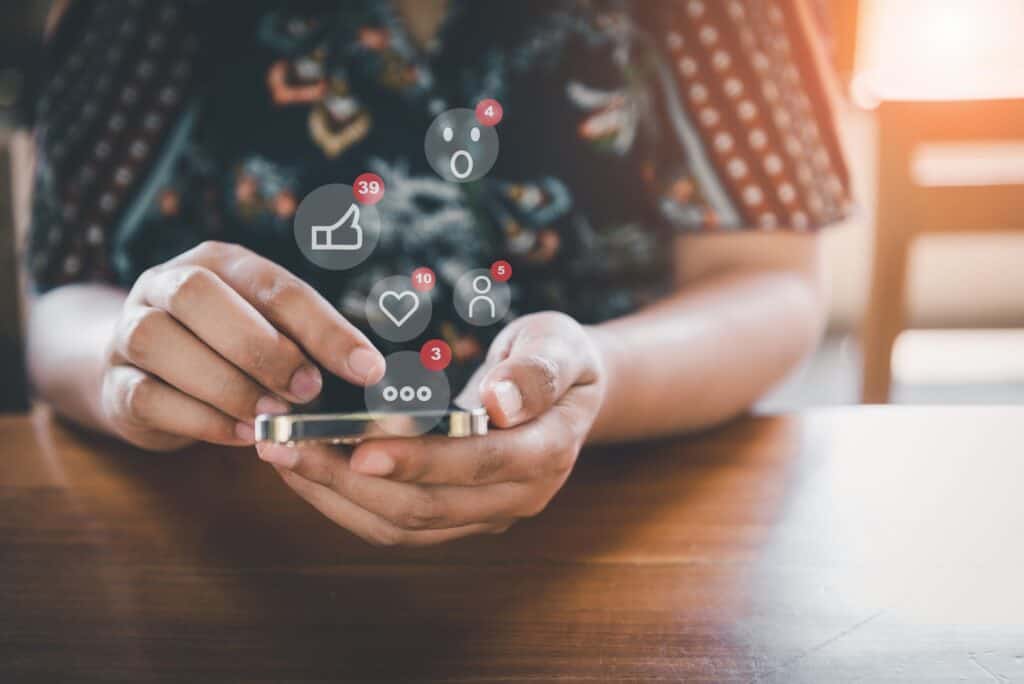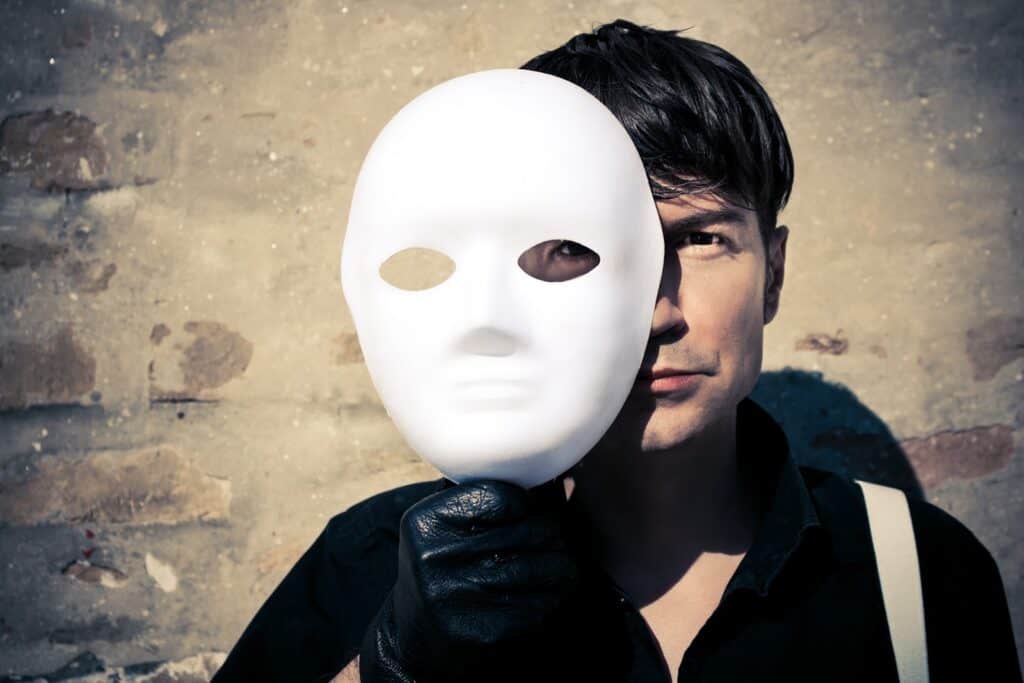
“Have you ever paused to consider the layers beneath the familiar ‘I’ that we declare to the world?” In an age saturated with labels and roles, the quest for self-identity becomes more intricate than a mere passage in an encyclopedia. Self-identity or one’s self, a term often casually tossed around in discussions of personal growth, development, and identity disorders, holds depths unexplored and meanings uncharted.
In fact, one of the most meaningful quests we venture upon in life is the exploration of self, mastering the art of being yourself.
Who are we? What defines us? How do we perceive ourselves and how do we fit into the world around us?
We are sentient beings defined by our consciousness, our experiences, and our interactions, all of which contribute to our numerical identity. Our self-perception or our ego identity is shaped by internal reflections and external feedback. In the vast expanse of the universe, though it’s overwhelming, we seek purpose and connection, striving to understand our place within the intricate web of existence.
These questions and answers lead us to the concept of self-identity—a complex, multifaceted construct that forms the core of our existence.
This exploration is not just an academic exercise, but a personal journey that can lead to greater self-awareness, personal growth, and fulfillment.
After all, mastering yourself is true power.
Key Takeaways
- Self-identity is a multifaceted concept that encompasses how we perceive ourselves and how we believe others see us.
- Components of Self-Identity: This includes personal characteristics, values and beliefs, past and present experiences, goals and aspirations, relationships, and societal roles.
- Importance of Self-Identity: Understanding one’s self-identity leads to better self-understanding, increased confidence, healthier relationships, clearer goal setting, and resilience.
- Various types of self-identity include personal identity, social identity, cultural identity, gender identity, professional identity, spiritual identity, ethnic identity, national identity, sexual identity, and digital identity.
- Identifying and understanding one’s self-identity is a transformative journey that involves introspection, self-reflection, and continuous growth. It’s vital to embrace self-acceptance, seek feedback, and regularly engage in self-reflection.
But, what exactly is self-identity? And how do you go about “finding yourself”?
What is Self-Identity and Why is it Important?
Self-identity, often simply referred to as identity, is a multifaceted concept that encompasses the way we perceive ourselves and how we believe others perceive us. It is a collection of beliefs, values, and thoughts that shape our understanding of who we are as individuals. This includes our personal characteristics, our roles in society, our beliefs, and our aspirations.
Simply put, self-identity is the answer to the question, “Who am I?” It’s a self-image or mental picture that you have of yourself, built upon your experiences, relationships, culture, and personal reflections.
It’s the way you define yourself, allowing you to create a life true to yourself, and it’s a crucial part of your psychological makeup.
The Importance of Self-Identity
By focusing on yourself and understanding your self-identity, you realize its vital importance for several reasons. Here are a few key points that highlight its importance:
- Self-understanding: Knowing your identity and self-concept helps you understand yourself better. It allows you to recognize your strengths, weaknesses, passions, and values. This understanding can guide your decisions and help you lead a more fulfilling and authentic life. E.g ., A marketing executive, realizes her reluctance to voice opinions in meetings stems from a fear of rejection, prompting her to actively work on her confidence and assertiveness.
- Confidence and Self-Esteem: A strong sense of self-identity often leads to greater confidence and self-esteem. When you know who you are and what you stand for, you’re likely to feel more secure in your choices and actions.
- Relationships: Your self-identity influences how you interact with others. Sometimes, this journey might even involve losing friends during personal growth, as you evolve and your priorities change. It can shape your relationships and determine who you connect with. Understanding your identity can help you build healthier, more meaningful relationships.
- Goal Setting and Achievement: Your identity can guide your goals and aspirations. It can help you determine what you want to achieve and set a path to get there. Understanding your identity can motivate you to pursue your dreams and overcome obstacles.
- Resilience: A strong self-identity can also contribute to resilience. When you’re secure in who you are, you’re better equipped to handle life’s challenges and bounce back from setbacks.
What is an identity crisis?
An identity crisis refers to a period of uncertainty and confusion in which a person struggles with understanding who they are. This challenge, often termed the ‘problem of personal identity,’ involves reconciling the different aspects of oneself. The core issue lies in the concept of self, which can become muddled due to changes or conflicts in values, beliefs, and goals.
As individuals navigate life, the persistence of one’s identity over time can be questioned. For instance, how does who we were in the past align with who we are now, or who we aim to be in the future? This reflection is not just an internal process but also occurs within a social context. Society plays a role, offering norms and expectations that can either align with or contradict our sense of self.
An identity crisis often surfaces when there’s a noticeable gap between the real self and the ideal self – the person we aspire to be. This gap can lead to feelings of discomfort and anxiety, as one grapples with aligning their self-perception with their actions and choices. Understanding and resolving an identity crisis involves a deep exploration of personal values and goals, often leading to a stronger, more defined sense of self.
What is My Self-Identity?

What is my self-identity? Well, it’s a journey of self-discovery that involves delving deep into your thoughts, emotions, experiences, and beliefs. It’s about understanding what makes you, you.
Your self-identity is unique to you, and embracing that independence leads to happiness.
It’s a blend of your personal characteristics, your values, your relationships, and your experiences. It’s the way you view yourself and how you believe others perceive you.
The process of figuring out your self-identity is about digging deep into your psyche to uncover the core of who you are.
Components of Your Self-Identity
Let’s break down some of the components that make up your self-identity:
- Personal Characteristics: These are the traits that define you as an individual and often are the signs you stand out in a crowd. They could be your physical attributes, your personality traits, or your talents and skills.
- Values and Beliefs: Your values and beliefs play a significant role in shaping your identity. They influence your decisions, your actions, and your perceptions of the world around you.
- Experiences: Your past and present experiences contribute to your identity. They shape your perceptions, influence your emotions, and guide your future actions.
- Goals and Aspirations: These are the things you aim to achieve in your life. They can provide a sense of direction and purpose, influencing your self-identity.
- Relationships: The relationships you have with others also shape your identity. They influence how you see yourself and how you interact with the world.
- Roles: The roles you play in society, whether it’s as a student, a parent, a professional, or a friend, are part of your identity. They shape your responsibilities, your interactions, and your perceptions of yourself.
What are the Types of Self-Identity?
Understanding the different types of self-identity can help you gain a deeper understanding of yourself and others. Each type of identity represents a different aspect of who you are and can influence your thoughts, feelings, and behaviors in unique ways. Let’s explore some of these types in detail.
Personal Identity: Unique Individual Traits
Your personal identity is like your personal fingerprint—it’s the unique combination of characteristics, traits, and experiences that set you apart from everyone else, showcasing being different as a strength.
It includes your personality traits, such as whether you’re introverted or extroverted, your physical characteristics, your talents, and your interests.
The challenges you’ve overcome, the accomplishments you’re proud of, the places you’ve been, and the people you’ve met—all these experiences contribute to who you are as an individual.
Social Identity: Group Affiliations & Self-Perception

Your social identity is shaped by the groups you belong to and the societal roles you play. This can include your family, your circle of friends, your community, and any clubs or organizations you’re a part of.
Your social identity also includes the roles you play in society, such as being a student, a parent, a worker, or a volunteer. These roles can significantly influence your perception of yourself and how you interact with others.
Cultural Identity: Influence of Traditions & Values
Your cultural identity is influenced by your cultural background and the traditions and values of that culture. This can include your nationality, your ethnicity, and the cultural practices you engage in.
Your cultural identity can shape your beliefs, values, and behaviors. It can influence how you see the world, how you interact with others, and how you understand yourself. It’s an integral part of your overall self-identity.
Gender Identity: Personal Sense of Gender
Gender identity is about your personal sense of your gender. It’s how you perceive yourself and how you identify on the gender spectrum. Some people identify as male or female, aligning with their biological sex, while others may identify as non-binary, genderqueer, or another term that reflects their personal experience of gender.
Your gender identity can influence your experiences, your relationships, and your self-perception.
Professional Identity: Career & Achievements
Professional identity is about how you see yourself in your professional life. It’s influenced by your career, your job role, and your professional achievements.
Your professional identity can shape your goals, your values, and your self-esteem. It can provide a sense of purpose and direction, and it can significantly influence your overall self-identity. Whether you’re a teacher, a doctor, an artist, or a business owner, your professional identity is a key part of who you are.
Spiritual Identity: Religious & Philosophical Impact
Your spiritual identity is shaped by your religious beliefs, spiritual practices, or philosophical outlooks. It’s the manner in which these beliefs and practices influence your perception of yourself and the world around you.
For some, spiritual identity may be closely tied to a specific religion or faith tradition. For others, it may be more about personal spirituality or philosophical beliefs. Regardless of the specifics, your spiritual identity can provide a sense of purpose, influence your values, and shape your understanding of life’s big questions.
Ethnic Identity: Belonging to an Ethnic Group

Ethnic identity is about your sense of belonging and identification with a specific ethnic group. This is often tied to shared heritage, language, and customs.
Your ethnic identity can influence various aspects of your life, from the foods you enjoy to the traditions you observe. It can shape your values, your beliefs, and your perception of yourself. Plus, it can provide a sense of community and belonging.
National Identity: Belonging to a Nation
Your national identity is about your sense of belonging to a particular nation. It’s influenced by shared history, values, and symbols.
Whether you feel a strong connection to your country of birth, or you’ve developed a sense of belonging to a country you’ve moved to, your national identity can play a significant role in shaping your self-identity.
Sexual Identity: Sexual Orientation Self-Identification
Sexual identity is about your self-identification with a particular sexual orientation. It’s how you perceive your own sexuality and how it influences your relationships and self-perception.
Your sexual identity can influence your relationships, your experiences, and your understanding of yourself. It’s a personal aspect of identity that can evolve and change over time.
Digital Identity: Online & Digital Personas
Your digital identity is about the persona or identities you create and portray in online and digital environments. It’s the way you present yourself on social media, in online communities, and in digital interactions.
Your digital identity can influence your relationships, your experiences, and your self-perception. It can provide a space for self-expression and connection. Whether you’re an avid gamer, a social media influencer, or a casual internet user, your digital identity is a key part of who you are in today’s digital age.
How Do You Identify Self-Identity?

Understanding and identifying your self-identity can be a transformative journey. It involves introspection, self-reflection, and a willingness to delve into the core of who you are. Here are some steps to guide you on this journey:
Identify Your Core Values
Core values are the guiding principles that shape behavior and decision-making. They reflect what is most important to you and can provide a sense of direction in your life.
To identify your core values, consider what you’re most passionate about. What principles do you hold dear? What beliefs guide your actions? Reflecting on these questions can help you identify your core values and gain a deeper understanding of your self-identity.
Recognize Your Strengths and Weaknesses
Your strengths are the things you excel at, the skills and talents that set you apart. Your weaknesses, on the other hand, are the areas where you could improve.
Identifying your strengths and weaknesses can provide insight into your abilities, your potential, and your areas for growth. It can help you set personal goals, make informed decisions, and build self-confidence.
Establish Personal Goals
Personal goals reflect your aspirations and ambitions. They’re the things you want to achieve in your life, whether it’s a career goal, a personal development goal, or a lifestyle goal.
Establishing personal goals can provide a sense of direction and purpose. It can motivate you to take action, overcome challenges, and strive for success. Your goals can say a lot about your values, your passions, and your self-identity.
Incorporate Your Passions into Your Life

Passions are the things you love to do. They’re the activities that excite you, inspire you, and make you lose track of time.
Incorporating your passions into your life can enhance your happiness, boost your motivation, and enrich your experiences. It can also provide insight into your interests and your talents.
Analyze Your Emotional Responses
Your emotional responses reflect your feelings and reactions to different situations. They can provide insight into your emotional intelligence, your coping mechanisms, and your interpersonal skills.
Analyzing your emotional responses can help you understand your emotions, manage your reactions, and improve your emotional well-being. It can also provide insight into your emotional tendencies, and your triggers.
Reflect on Past Life Experiences
Your past life experiences include the events, interactions, and moments that have significantly influenced your life.
Reflecting on these experiences allows you to understand how they have shaped your beliefs, values, and perceptions. It helps you to recognize patterns, learn from past mistakes, and appreciate your growth. This reflection can provide valuable insights into your self-identity and help you understand the person you’ve become.
Identify Your Role Models
Role models are individuals who inspire you and embody qualities you admire. They could be people in your personal life, like family members or friends, or public figures, such as leaders, celebrities, or activists.
Identifying your role models can provide insights into the traits and values you aspire to. It can help you understand what you admire in others and strive to embody those qualities yourself. Your choice of role models can say a lot about your aspirations and your self-identity.
Embrace Self-Acceptance
Self-acceptance is about embracing who you are, including your strengths, weaknesses, successes, and failures. It’s about acknowledging your imperfections and appreciating your unique qualities.
Embracing self-acceptance can boost your self-esteem, improve your mental health, and promote a positive self-identity. It encourages you to be kind to yourself, to celebrate your achievements, and to learn from your mistakes.
Seek Feedback from Trusted Individuals
Feedback from trusted individuals can provide valuable insights into your behaviors, skills, and impact on others. These individuals could be friends, family members, mentors, or colleagues who know you well and whose opinions you value.
Seeking feedback can help highlight areas for improvement and affirm your strengths. This feedback can provide a different perspective on your self-identity and help you grow as an individual.
Regularly Engage in Self-Reflection

Self-reflection is the practice of regularly taking time to examine your thoughts, feelings, and experiences. It’s about asking yourself questions, challenging your beliefs, and exploring your inner world.
Regularly engaging in self-reflection can enhance your self-awareness, promote solitude for personal growth, and deepen your understanding of your self-identity. It encourages you to be mindful, to learn from your experiences, and to strive for self-improvement.
Conclusion
Concluding our exploration of self-identity, we’ve gone through concepts like self-knowledge and the impact of an identity crisis. Reflecting on these themes, consider this: Does our sense of self remain static, or is it an ever-evolving narrative shaped by our experiences? As you ponder this, remember the words of the renowned eds: “Identity is not a fixed point but a fluid one.” In the vast encyclopedia of our lives, we are both the authors and the subjects. See also, within yourself, a story still being written.
Understanding your self-identity is a transformative journey—one that can provide a deeper understanding of who you are, what you value, and how you perceive the world. It’s a journey that requires introspection, self-reflection, and a willingness to delve into the core of your being.
Take note, that your self-identity is not fixed. It evolves and changes as you grow, learn, and have new experiences. For this reason, keep exploring, keep reflecting, and keep striving to understand yourself better. Because really, the journey of self-discovery is a lifelong adventure, and understanding your self-identity is a crucial part of that adventure.
FAQs
Q: How does self-identity develop?
A: Self-identity is a complex interplay of various factors, including social roles, personal experiences, and psychological continuity. It is influenced by interactions with others and can evolve over time.
Q: What is the “problem of personal identity”?
A: The problem of personal identity is a philosophical concept that questions the nature of personal identity and what it means to be the same person over time, especially in the face of change and development.
A: Social groups can significantly influence an individual’s self-identity by providing a sense of belonging, defining social roles, and shaping behavioral norms that contribute to the perception of self.
Q: How does the concept of self-identity relate to behavior?
A: Self-identity is closely tied to behavior as it influences how individuals perceive themselves and their actions. It can impact decision-making, interactions with others, and the adoption of certain social roles.
A: Erik Erikson’s theory of psychosocial development and Derek Parfit’s philosophical exploration of personal identity are among the influential theories that have contributed to the understanding of self-identity.
Q: How does a person’s past or future impact their self-identity?
A: A person’s past experiences and future aspirations can shape their self-identity by influencing their beliefs, values, and sense of purpose. These factors contribute to the ongoing construction of self-perception.
Q: Can self-identity be influenced by group membership?
A: Yes, group membership can significantly impact self-identity as individuals often derive a sense of identity from their affiliation with various social, cultural, or professional groups.
Q: What is the importance of having a strong sense of self-identity?
A: A strong sense of self-identity is crucial for mental well-being, decision-making, and navigating social interactions. It provides individuals with a foundation for self-confidence and a clear understanding of their place in the world.
Q: How can individuals explore and cultivate their self-identity?
A: Individuals can explore and cultivate their self-identity through introspection, engaging in diverse experiences, seeking feedback from others, and fostering a deeper understanding of their values and aspirations.









